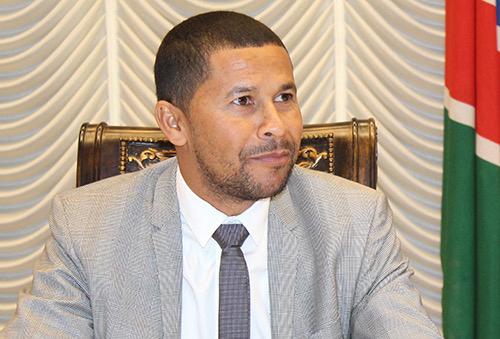Jemima Beukes is an exceptional Namibian writer who is making waves in the literary world by chronicling her country’s unique history, culture, and identity. Through her impactful works, Beukes offers readers an intimate glimpse into the experiences that have shaped Namibia’s past and continue to influence its present. With her passion for storytelling, Beukes is not only preserving Namibia’s heritage but also playing a pivotal role in documenting the nation’s evolving narrative.
The Rise of Jemima Beukes
Jemima Beukes was born and raised in Namibia, where she developed a deep appreciation for the rich history and diverse cultures that make up the fabric of the country. From an early age, she was captivated by the power of storytelling and the ability to use words to convey meaning and emotion. Her interest in literature blossomed as she grew older, and she pursued her studies in English literature, which allowed her to hone her craft.
Beukes’s work reflects her background and love for Namibia. Drawing on her experiences and those of her fellow Namibians, she explores themes of identity, history, and social justice. Through her writing, Beukes has established herself as one of the country’s leading voices in literature, often using her platform to raise awareness of Namibia’s complex past and the challenges it faces as it moves into the future.
Chronicling Namibia’s History
Namibia’s history is marked by colonization, apartheid, and the long struggle for independence. As a writer, Beukes is committed to ensuring that these pivotal moments are not forgotten. Her works often focus on the stories of individuals and communities who have played a significant role in Namibia’s struggle for liberation and self-determination. She provides readers with a nuanced and humanized portrayal of these events, ensuring that the personal stories of those who lived through them are preserved.
In her writing, Beukes also addresses the socio-political issues that continue to affect Namibia today, such as inequality, racial tensions, and the challenges faced by marginalized communities. She does not shy away from the difficult subjects, tackling them with sensitivity and insight. By sharing these stories, Beukes contributes to the ongoing conversation about Namibia’s national identity and the ways in which its past continues to shape its future.
Exploring Namibian Culture and Identity
Another key aspect of Beukes’s work is her exploration of Namibian culture. Namibia is home to a variety of ethnic groups, each with its own unique traditions, languages, and customs. Beukes takes great care to highlight these diverse cultures in her writing, capturing the richness of the country’s heritage. Through her characters and narratives, she reflects the complexities of Namibian identity, illustrating the ways in which different communities interact, coexist, and influence one another.
By documenting these cultural stories, Beukes also helps to preserve Namibia’s oral traditions, which have long been an essential part of the country’s history. Her works serve as a bridge between generations, ensuring that the values, wisdom, and experiences passed down through the generations are not lost.
The Power of Storytelling in Namibia’s Future
For Beukes, literature is more than just a means of telling stories—it is a tool for change. Her work challenges readers to think critically about the issues facing Namibia and its people, encouraging dialogue about topics that may otherwise be overlooked. Whether through novels, essays, or short stories, Beukes uses her voice to advocate for the rights and needs of the Namibian people, particularly those from underrepresented communities.
Beukes’s commitment to using her writing as a form of advocacy has earned her a place in the global literary scene. She has garnered recognition for her ability to engage with both local and international audiences, using her works to bring attention to important social issues while also celebrating the beauty of Namibia’s people and landscapes. Her writing not only serves as a window into Namibia’s past and present but also as a guide to its future.
Achievements and Recognition
Jemima Beukes has made a significant impact on the Namibian literary landscape. Her work has been well-received both within Namibia and abroad, with several of her books gaining recognition at literary festivals and competitions. Her ability to weave compelling narratives that resonate with readers of all backgrounds has solidified her status as one of Namibia’s most influential writers.
In addition to her writing, Beukes has also been involved in various initiatives aimed at promoting literature and literacy in Namibia. She has worked with local schools, libraries, and cultural organizations to encourage young people to explore the world of books and writing. Through these efforts, Beukes is helping to cultivate a new generation of Namibian writers who will continue to tell the country’s story for years to come.
The Impact of Beukes’s Work on Namibian Literature
Beukes’s contribution to Namibian literature extends beyond her own works. Her influence can be seen in the growing number of writers who are following in her footsteps and addressing similar themes in their own writing. As more Namibian authors gain recognition on the international stage, the country’s literary scene is becoming an important part of the global conversation about African literature.
Beukes has also played a key role in fostering a sense of literary community within Namibia. By collaborating with other writers, editors, and cultural leaders, she has helped to build a supportive environment in which literature can thrive. This collective effort is vital to ensuring that Namibia’s literary tradition continues to grow and evolve.
Jemima Beukes is a writer who is not only chronicling Namibia’s past but also shaping its literary future. Through her powerful storytelling, Beukes is documenting the rich history, diverse cultures, and ongoing struggles of her homeland, ensuring that Namibia’s story is preserved for future generations. As she continues to write and inspire others, Beukes is proving that literature has the power to change the world and that the stories of Namibia’s people are worthy of being told.
In a world where history is often forgotten, Beukes’s work stands as a testament to the importance of storytelling in shaping a nation’s identity and future. As her influence continues to grow, it is clear that Jemima Beukes will remain a central figure in the ongoing narrative of Namibia’s journey toward a more just, equitable, and inclusive society.













